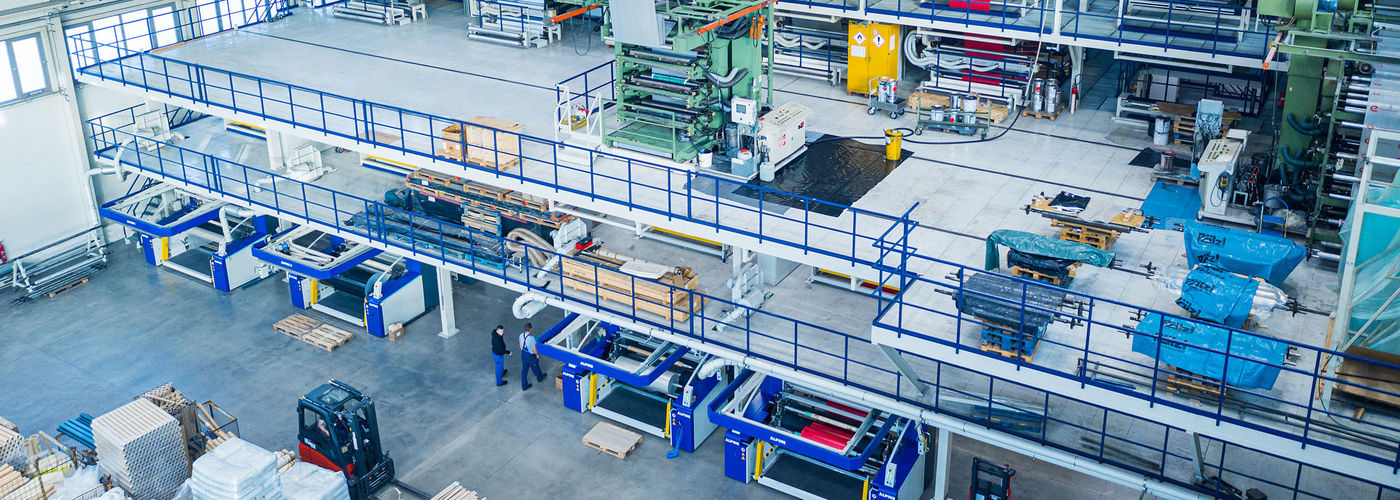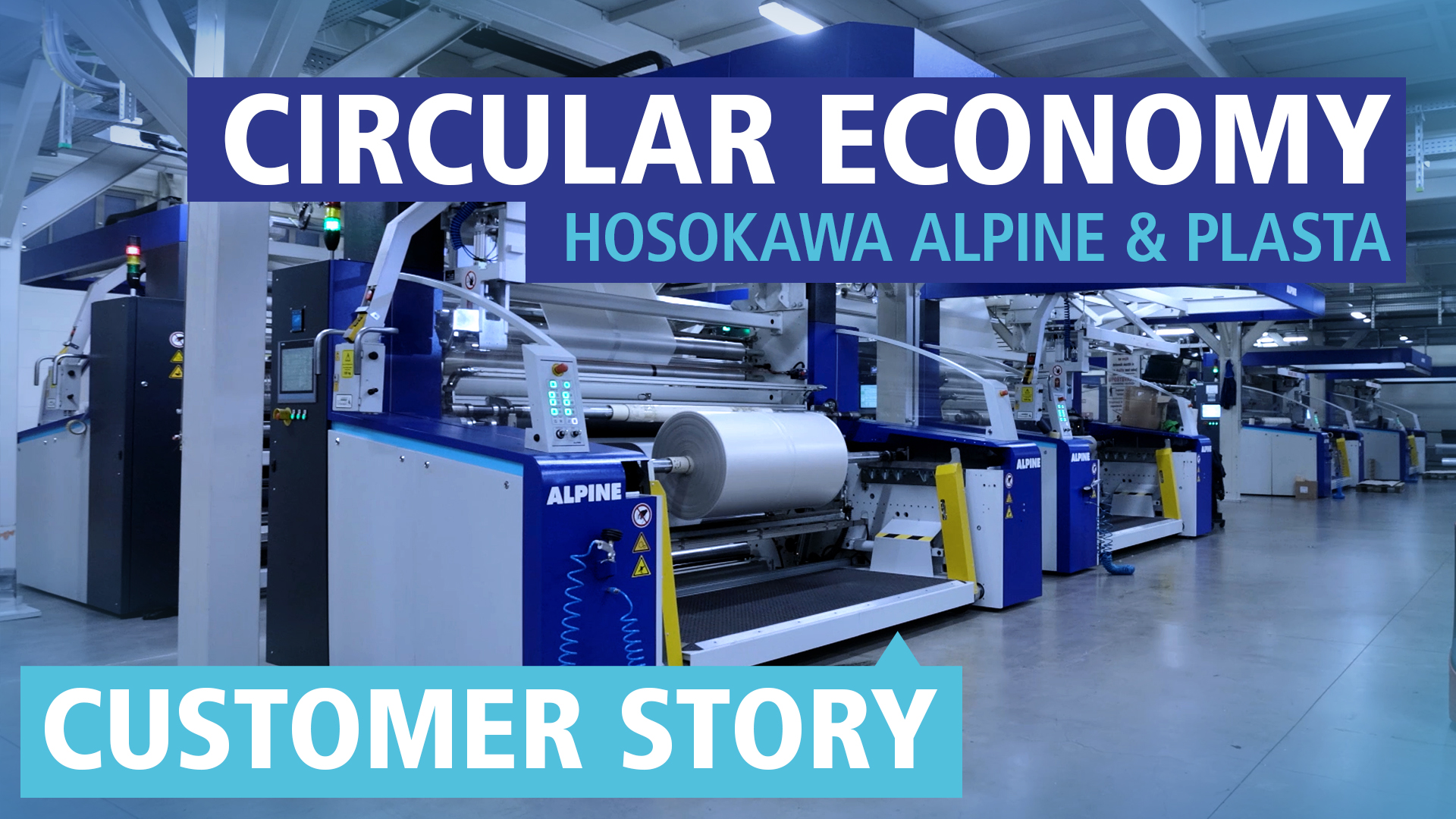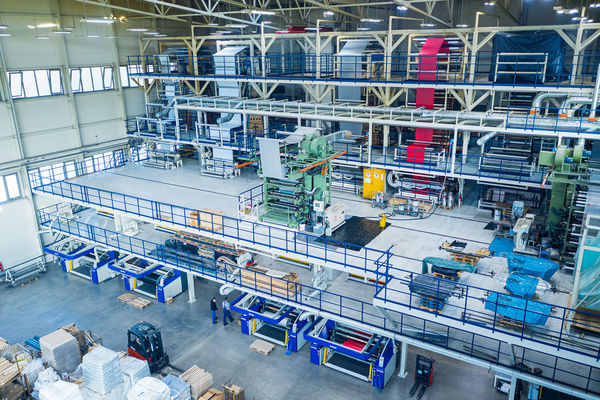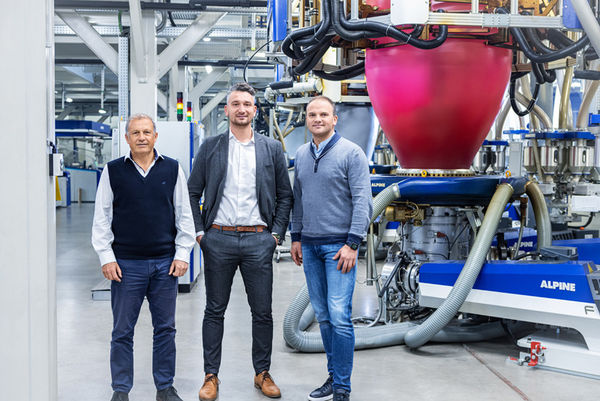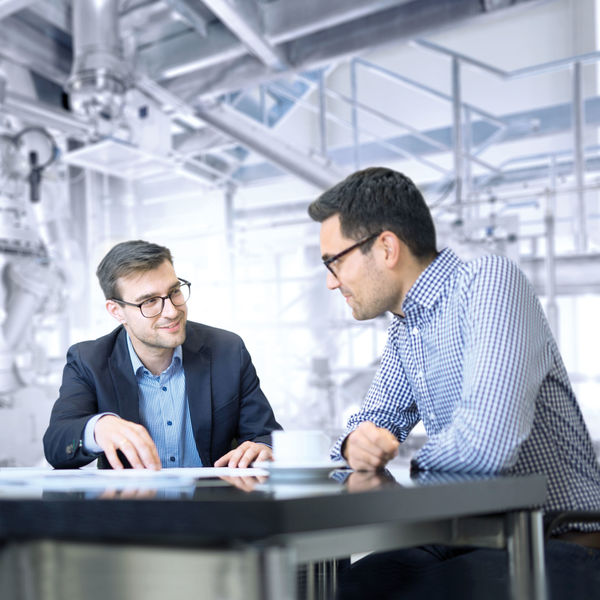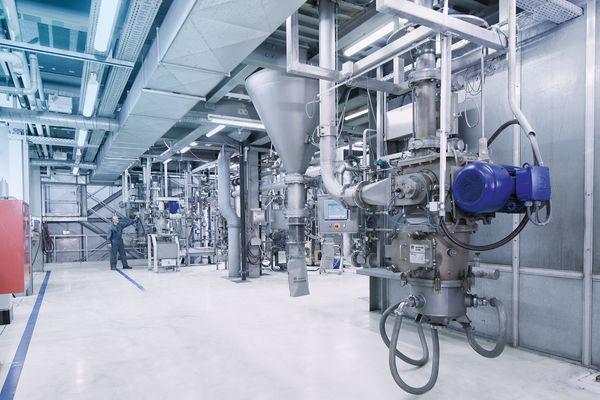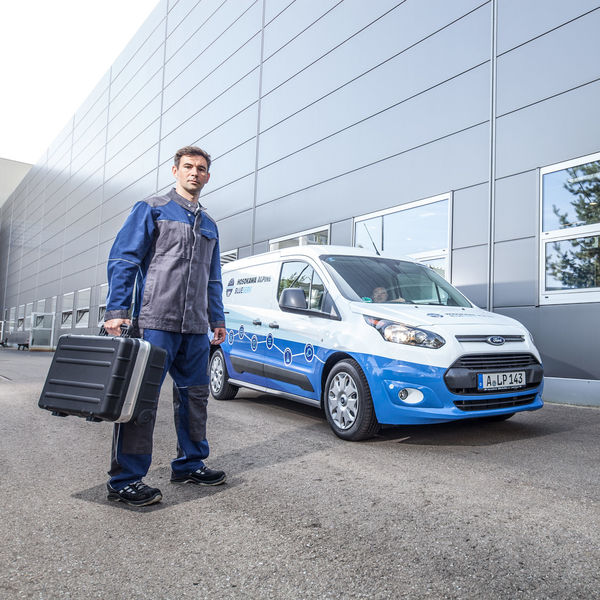Keeping our planet a healthy and livable place is one of the greatest challenges of our time. In the plastics industry, too, the use of resources and sustainability are the subjects of intense discourse. Circular economy is a promising option on the road to greater sustainability, as it aims to utilize packaging and raw materials in ways that have long been technically possible. In practical terms, this means avoiding waste by reusing existing products. If this is not possible, the products are broken down into their basic components and these are recycled.
The Plasta company in Sentrupert is one of the leading manufacturers of blown films and packaging made from recycled polyethylene in Southern Europe. Its machinery includes five blown film lines from Hosokawa Alpine. "Plasta is actively addressing the issue of the circular economy and is showing what the future can look like in this area. We are pleased that our systems can make a valuable contribution to this," says Konstantin Klein, Sales Manager at Hosokawa Alpine.
In order to carry out the production cycle locally and minimize the environmental impact, Plasta has a dedicated logistics and trading department that coordinates the supply chains. The raw material base for production is polyethylene film waste. Plasta processes more than 6,500 metric tons a year. Every day, around 65 metric tons of post-consumer waste arrive at the company from a radius of 1,500 kilometers. This includes household waste, industrial packaging and beverage bottles.
Although contaminated and unsorted, the plastic waste is not garbage, but a valuable resource for Plasta: "The technology for separating different types of plastic is advancing more and more, which means that an increasingly large proportion can be recycled. At Plasta, the first step is cleaning. Then the clean waste is shredded and processed into plastic granulate, which is the starting point for further production," explains Stane Gorenc, Managing Director at Plasta.
![[Translate to English:] Die heads series X](/fileadmin/_processed_/2/9/csm_Blaskopf_Baureihe_X_a8986ba98c.png)
